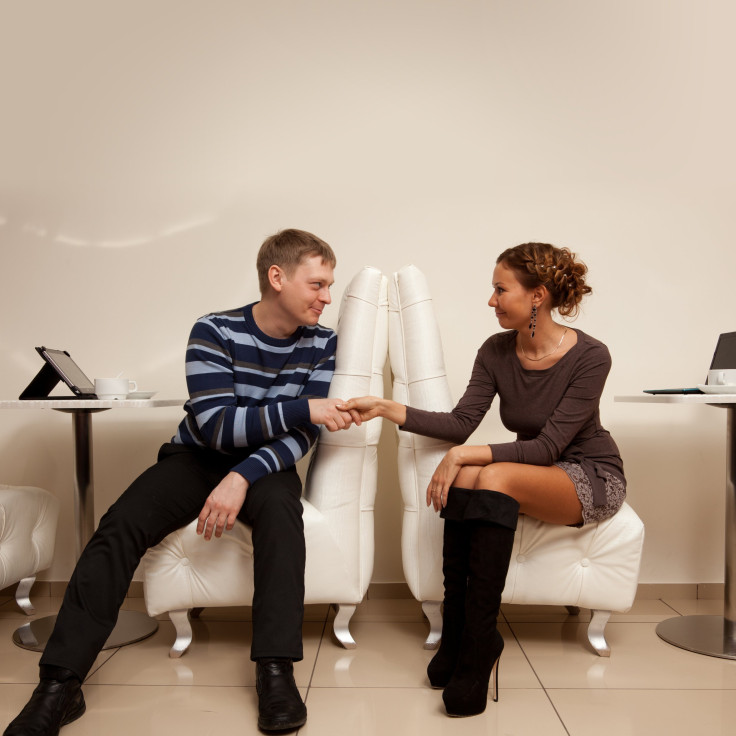Why Facebook Stalking Makes Your Social Anxiety Worse And Doesn't Help When Meeting Someone New

Whether you want to admit it or not, everyone sort of does it: Facebook stalking is unavoidable. The whole premise of the social-networking website involves seeing personal conversations, photos, and information about other people that you would normally never see up front, just talking to them face to face.
Having all that information at your fingertips makes it tempting to “stalk,” or to get a better understanding of a person by “creeping” on their Facebook profile. It makes sense then, that before meeting someone new, we may want to gather as much information about them as possible so as to have a smoother first meeting. But a new study has found quite the opposite: when students saw a person’s Facebook profile right before meeting them in person, their arousal levels were much higher — especially for people with social anxiety. Shannon Rauch, the lead author of the study and an assistant professor of psychology at Benedictine University in Arizona, decided to test whether meeting a person via Facebook first would improve — or worsen — social anxiety before meeting them in person. She gathered 26 undergraduate college students and required them to take a social anxiety test, then divided them into four groups.
The first group simply saw a person’s Facebook page, and the second group took in the sight of a new person in a room. The third group, meanwhile, saw a person’s Facebook page, then saw that very person in the room. And the fourth group saw the person first, then checked their Facebook page afterwards. During this time, the participants were hooked up to monitors that measured electrical signals in their skin, which shows their arousal levels.
We may think that digital social interaction beforehand would actually help alleviate some of the social anxiety associated with meeting someone for the first time, but Rauch’s results pointed to something different. “Intuitively we all thought it should help to pave the way a little bit,” Rauch told Time. But she found that the students who first viewed a person’s Facebook page, then saw that very person in the room, had a higher arousal score than people who just saw a person in the room without having any Facebook information on them.
It’s important to note that higher arousal scores don’t necessarily mean a higher anxiety or stress score: stress would be measured by stress hormone levels. But Rauch says that regardless, this change in arousal was negative, not positive, because seeing their Facebook page raised arousal rather than calming it. She also found that the effect was stronger among people who had higher scores on the social anxiety test. “If your goal is to calm yourself for the face-to-face encounter, Facebook is probably not the best strategy,” Rauch told Time.
The interesting thing about this study is that it paves the way for research looking into how social media helps, or worsens, social connections and relationships. The study suggests that seeing someone’s Facebook page before meeting them first creates an idealized picture of that person, that comes along with expectations that may not be met in real life. Meanwhile, social media in general has a tendency to breed envy and insecurity as people are likely to make comparisons easily: Facebook friends who brag about personal achievements online can make us feel inferior, even though in reality that may not always be the case. Previous research has shown that social media can cause anxiety, but Rauch is interested in measuring people’s bodily reactions and arousal levels in relation to social media. “We’d like to start using physiological data to start challenging notions of how social media affects social connections,” Rauch told Time.
Source: Rauch S, Strobel C, Bella M, et al. Face to Face Versus Facebook: Does Exposure to Social Networking Web Sites Augment or Attenuate Physiological Arousal Among the Socially Anxious? Cyberpsychology, Behavior, and Social Networking. 2014.



























